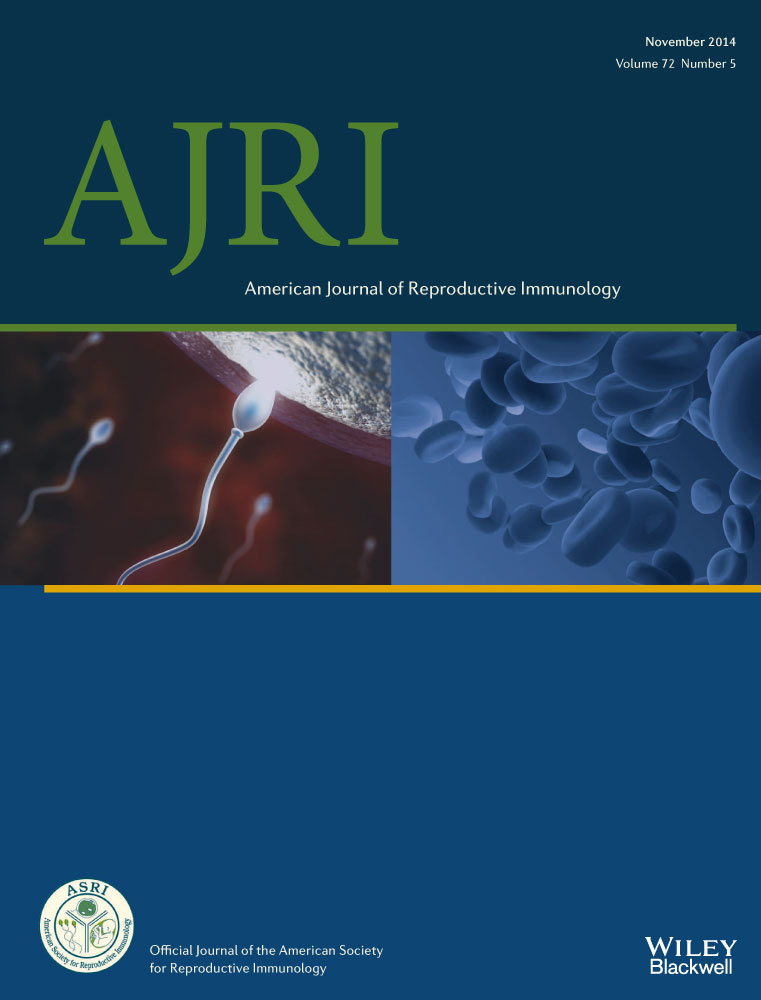The CD200-tolerance Signaling Molecule Associated with Pregnancy Success is Present In Patients with Early-stage Breast Cancer but Does not Favor Nodal Metastasis
Abstract
Problem
The CD200-tolerance signaling molecule prevents pregnancy failure and is also expressed by a wide variety of malignant tumors. The effect of CD200 mRNA expression on progression of human tumors has been variable.
Method of study
A cross-sectional study was performed to examine the correlation between CD200 protein expression in the primary tumors from postoperative Stage I–IIIA human breast cancer and the likelihood of regional lymph node metastasis.
Results
Fifty-eight percentage of patients had strong CD200+ tumor staining (71% of Stage I and 53% Stage II–IIIA). Strong staining was associated with large T2–3 primary tumors compared to T1 tumors (64 versus 50%) and T2–3 N+ versus T1 N− tumors (70 versus 63%), but this was not statistically significant. Nodal metastases were not more frequent in patients with strong CD200+ staining (57% compared to 58% for weak/negative staining cases), and the metastatic tumor cells in regional lymph nodes were often CD200− when the primary tumor was CD200+.
Conclusion
CD200 expression by early-stage human breast cancer cells in primary tumors did not correlate with increased regional lymph node metastasis.




